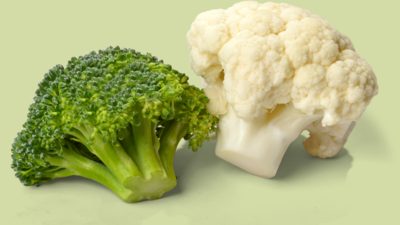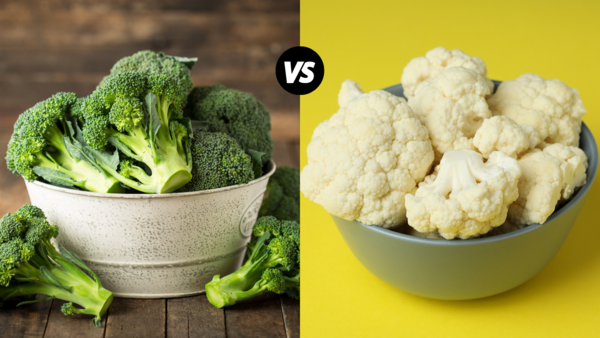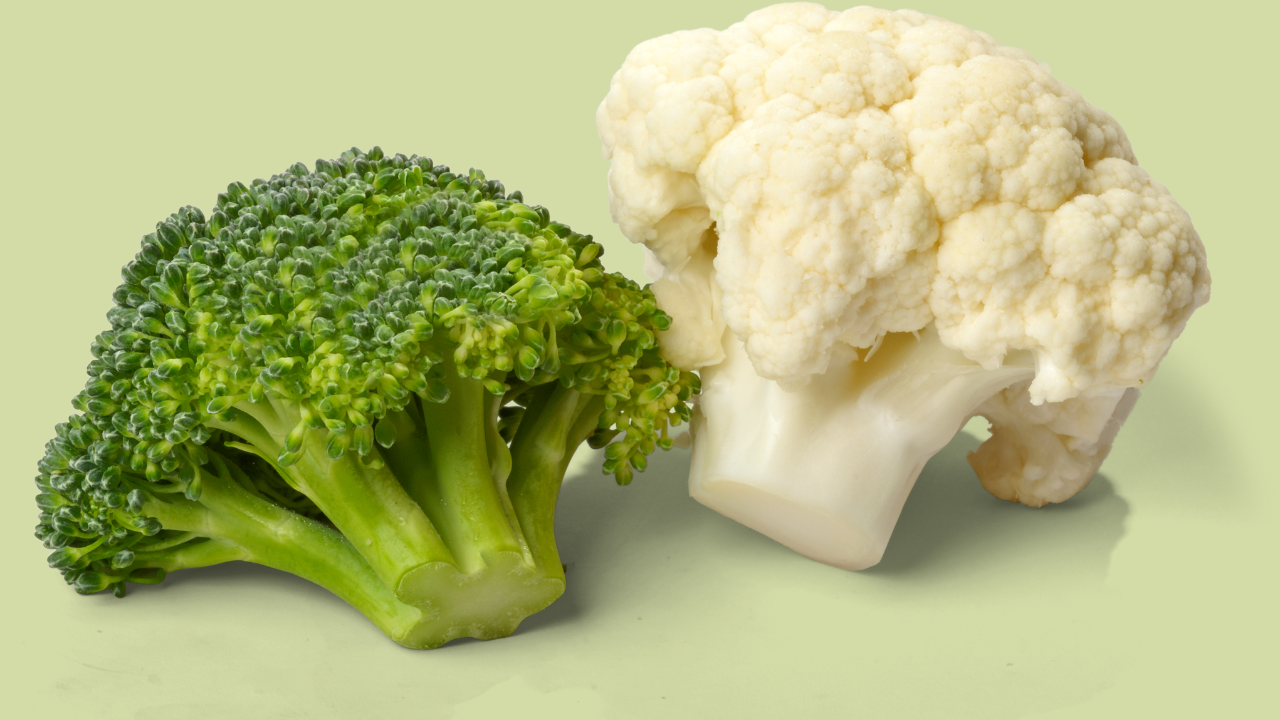In a head-to-head comparison between broccoli and cauliflower, the pale white cruciferous vegetable would be the obvious winner if adaptability were the deciding factor. Especially when broccolli is still considered an exotic vegetable in Indian households. However, the benefits of this dark-hued cousin of cauliflower are making it a close competitor. Which one is healthier, you wonder? Well, read below to know which one to pick:
One cup of raw broccoli contains:
30 calories
2g of protein
0g of fat
6g of carbohydrates
2g of sugars
2g of fiber
29 mg of sodium
One cup provides more than a day’s supply of vitamins C and K. A healthy quantity of manganese, folate, and vitamin A is also present (more than 10% of your daily value).
One cup of raw cauliflower contains:
27 calories
2g of protein
0g of fat
5g of carbohydrates
2g of sugars
2g of fiber
32 mg of sodium
Broccoli and cauliflower have nearly the same amount of folate. Cauliflower is inferior to broccoli in terms of vitamins A, C, and K. It has very little vitamin A, and a 1-cup serving of cauliflower only has about three-quarters of your daily vitamin C needs and 20% of your vitamin K recommendation.
However, compared to broccoli, cauliflower does contain a small amount more potassium. And it truly deserves its low-carb crown, with just 5 grams of carbohydrate per cup (that’s slightly less than broccoli).
Differences between Broccoli and Cauliflower
Although they are both extremely nutrient-dense veggies, broccoli is better for eye health and contains more vitamins than cauliflower, particularly K and C. In addition to having more fiber and nutrients than cauliflower, broccoli florets also contain vitamin A. Broccoli has more of the beneficial polyunsaturated fatty acid and fewer of the harmful saturated fatty acids than cauliflower.
Including both in your diet weekly is the key
Both are rich in antioxidants, albeit in different forms. In fact, they are frequently classified together because, despite some of their distinctions, many of the nutrients they contain are similar. Cruciferous vegetable intake was correlated with blood vessel calcification or stiffening. This implies that your blood vessels are likely to be in better condition the more you eat them. Importantly, some special antioxidants like glucosinolates are present in cauliflower. Although cauliflower may have a little better profile than broccoli, both vegetables have obvious health benefits from these special sulfur-containing chemicals. So, it’s better we don’t compare and consume both weekly.
Black Tea vs Black Coffee: Which is healthier?
I’m Manas Ranjan Sahoo: Founder of “Webtirety Software”. I’m a Full-time Software Professional and an aspiring entrepreneur, dedicated to growing this platform as large as possible. I love to Write Blogs on Software, Mobile applications, Web Technology, eCommerce, SEO, and about My experience with Life.





